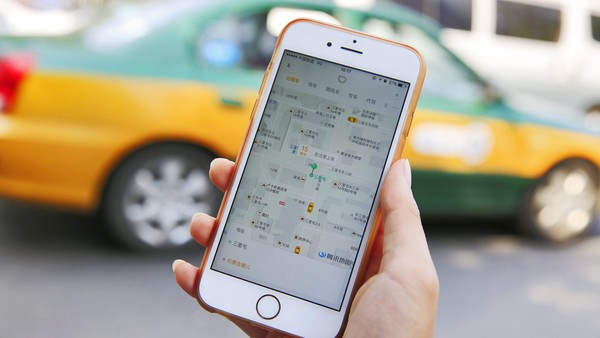(单词翻译:单击)
Didi Chuxing, the Chinese car-booking group, said on Wednesday that it has acquired 99, the Brazilian app, potentially providing more firepower for a rival to Uber in one of the world’s largest markets.
中国打车集团滴滴出行(Didi Chuxing)周三表示,它已收购巴西应用99,这可能为优步(Uber)在全球最大市场之一的竞争对手提供更多火力。
Beijing-based Didi already owned a minority stake in 99 and the takeover pushes it further beyond its national borders, just weeks after it raised $4bn in new capital to fuel expansion.
总部位于北京的滴滴此前已持有99的少数股权,而此次收购将把它的业务进一步扩展至国境之外。就在几周前,滴滴筹集了40亿美元新资本,用于支持扩张。
A local start-up, 99 has amassed 14m users and 300,000 drivers in Brazil, which, with over 200m inhabitants, is one of the most competitive markets for car-booking apps. Uber has 17m users and 500,000 drivers there, making the country its second largest outside the US.
作为当地一家创业企业,99已在巴西积累了1400万用户和30万司机。国民人数超过2亿的巴西,是全球竞争最激烈的打车应用市场之一。优步在巴西拥有1700万用户和50万名司机,巴西是它在美国以外的第二大市场。
“We are confident that being part of Didi Chuxing will vastly enhance our capability to expand our services throughout Brazil to bring critical value to users, drivers and cities,” said Peter Fernandez, chief executive of 99.
“我们相信,成为滴滴出行的一部分,将极大地提高我们在巴西各地拓展服务的能力,为用户、司机和城市带来重要价值,”99的首席执行官彼得?费尔南德斯(Peter Fernandez)说。
The ride-sharing industry is experiencing consolidation because scale is vital to attracting both drivers and passengers, and deals can help stabilise a business model that is often seen as overly-dependent on fluctuating prices and cash-burning promotions.
共享出行行业正在进行整合,因为规模对于吸引司机和乘客是至关重要的,而合并交易可以帮助使一种经常被认为过度依赖价格波动和烧钱促销的商业模式稳定下来。
While many localised car-hailing apps have emerged in individual countries, global operators such as Didi and Uber see network effects as their customers travel around the world. Being able to use the same app in multiple countries is more convenient than downloading extra software and signing up for a new account in local currencies.
在个别国家出现许多本地化的叫车应用之际,但滴滴和优步等全球运营商看到了网络效应,因为它们的客户在世界各地旅行。跟下载额外的软件并用当地货币创立新账户相比,能在多个国家使用相同的应用更为方便。
“Globalisation is a top strategic priority for Didi,” Cheng Wei, founder and chief executive of Didi, said in a statement. “The success that founders and team of 99 have achieved in Brazil embody the very spirit of entrepreneurship and innovation in the LatAm region.”
“全球化是滴滴的首要战略重点,”滴滴创始人兼首席执行官程维在一份声明中称,“99的创始人及团队在巴西取得的成功,展现出拉美地区的创业者精神和创新能力。”
Terms were not disclosed for this latest ride-sharing land grab but Brazilian newspaper Valor Econ?mico reported that Didi’s takeover valued 99 at $1bn.
这笔共享出行行业最新并购交易的条款并未对外披露,但巴西报纸《价值经济报》(Valor Econ?mico)报道称,滴滴的收购价为10亿美元。
Launched in 2012, 99 provides on-demand peer-to-peer and traditional taxi services in over 400 cities in Brazil. It was the first service in Brazil to launch a female-only option for female passengers, as well as the first to offer tipping for its drivers.
创立于2012年的99,在巴西逾400个城市提供按需、个人对个人和传统出租车服务。它是巴西第一款为女性乘客推出女性专享服务的应用,也是第一款为司机提供小费的服务。

Its $200m fundraising last year was the largest investment on record in a Brazilian start-up. The round was led by Didi and Riverwood Capital, a private equity firm with offices in Silicon Valley and S?o Paulo.
99去年融资2亿美元,是巴西创业企业获得的有记录以来规模最大的一笔投资。这轮融资的领投方是滴滴和Riverwood Capital,后者是一家在硅谷和圣保罗设有办事处的私人股本公司。
The takeover further complicates Didi's relationship with Uber. The San Francisco-based ride-hailing pioneer is a significant investor in Didi following a 2016 deal that turned the former rivals into partners in the Chinese market. With Didi taking control of 99, Uber once again finds itself competing against its sometime partner in one of its fast-growing markets.
此次收购使滴滴与优步之间的关系变得更复杂。这个总部位于旧金山的叫车行业先行者是滴滴的一家重要投资者。此前的2016年,两者达成一项协议,从竞争对手变成了中国市场的合作伙伴。在滴滴收购99之后,优步又一次发现在其快速增长的市场之一跟曾经的合作伙伴展开竞争。
In another example of overlapping interests in the sector, all three companies have received significant investments from SoftBank of Japan in the past year.
过去一年里,这三家公司都得到了日本软银(SoftBank)的大笔投资,成为该行业利益交叉的又一个例子。


